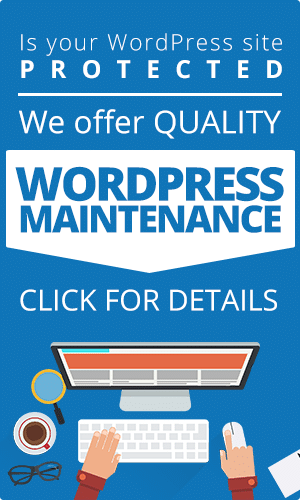Looking to learn how to build links for SEO dominance? Great, you’ve landed in the place to do just that. Let’s begin!
Link building for SEO is one strategy you want to prioritize in your effort to rank higher on Google and other search engines. But not all links pass an equal amount of value to your website. While some links are beneficial for SEO, others are of little or no significance and may even get you penalized by Google.
In this post, you’ll learn 7 proven tactics on how to build links for SEO to skyrocket your site to page #1 on the SERPs, generate massive traffic and exponentially increase revenue for your business.
What Is Link Building?
Link building is the practice of driving one-way hyperlinks, also known as backlinks, to your website with the goal of increasing your ranking position and site visibility on search engines like Google, Yahoo and Bing. Simply put, link building is the process of getting other websites to link to your website in order to boost your search ranking.
Why Are Links So Important For SEO?
If you want to know how to build links for SEO, first you need to know why these links are so important.
Gone are the days when pioneer search engines like Yahoo and Alta Vista placed huge emphasis on content as the sole consideration for ranking web pages and websites. The practice changed a long time ago when Google came on board. Google introduced their now-famous PageRank Algorithm which didn’t only analyze the content on a webpage but also looked at how many websites linked to that page.
Till date, backlinks still remain an important factor for SEO rankings. In Google’s words: “… webmasters can improve the rank of their sites by increasing the number of high-quality sites that link to their pages.” This shows that one of the ways Google evaluates the relevance or importance of the content on your website is by looking at the number of trusted or authority sites that make reference to it.
Meanwhile, it goes without saying that Google isn’t essentially interested in just the quantity but also the quality of those backlinks.
Now, the biggest question is, how do you differentiate good links from bad ones?
It’s important to have a clear understanding of how to identify good links as doing so will help you focus on building links that tremendously improve your Google rankings.
How To Find High-quality Links For SEO
You can determine if a link will have a positive impact on your ranking by considering the following factors:
Authority of the page: Links from authority pages pass more value to your website than those from random ones with no established reputation or credibility. When an authority page links to your website, it tells people that you’re also an authority in your niche or industry. Google sees the reference as a sort of endorsement and thus optimizes your site for more visibility and higher ranking.
Authority of the site: Getting links from authority sites like Forbes, New York Times, and the likes can have a positive impact on your SEO ranking. While these links are usually tough to get, they’re worth the effort as they can significantly improve your site visibility.
Relevancy of the site: While Google considers the authority of a site or page in allotting value to a link, they also look at the relevance of the sites’ themes or niche in regards to yours. For example, if you own a website that sells SEO tools and you get a link from an authority site in a weight loss niche… such a link may not really give you any big boost. That said, you receive valuable links from authority sites in the same niche as you.
Dofollow links: A site can communicate to Google about the authority and credibility of your site through the kind of link they send to your site. For example, dofollow links tell Google that your site is endorsed. The structure of dofollow link is: <a href=”https://yoursite.com”>. The direct opposite of this type of link is the nofollow link. It uses rel= “nofollow” tag to tell search engines not to count the link as an endorsement.
7 Simple Tips On How To Build Links For SEO
Guest Posting or Guest Blogging
First on our “how to build links for SEO” list is a technique called guest posting. Guest posting is one of the oldest tactics of building links for SEO. It’s a common practice whereby you reach out to an authoritative site in your niche and offer to create and publish an article on their website. In the article, you link back to your own site.
Although many SEOs seem to have spammed or abused this tactic, nevertheless it still works wonders if you can take your time to do it correctly. Guest posting is an effective way to build relationships, exposure and backlinks to elevate your site or targeted page to the top of SERPs.
Both parties: you and the hosting site/blog, benefit from the relationship. They offer you the opportunity to write on their site and generate a link while your content engages their audience. In fact, your post can heighten the credibility of their site as readers seem to trust blogs or sites with multiple authors.
How do you find prospects to write:
Look for authority sites in your niche that are accepting guest posts. Doing this manually can be a little daunting but not impossible. A software like Ahrefs can help you jumpstart the process and get the result you need within some minutes. To do it manually, head on to Google and search one of the following combinations:
- “Keyword” “write for us”
- “Keyword” “guest post”
- “Keyword” “become a author”
- “Keyword” “inurl:contributors”
- “Keyword” “inurl:authors”
- Inurl: “your keyword” “contributor”
After finding them, send them an email telling them about your intention to write a guest post for their site. Ensure you show them what value you are bringing to their website, because it has to be mutually beneficial for them to consider it.
Outreach
This tactic is quite similar to guest posting but you don’t necessarily have to create content before you can earn a link. Outreach involves you reaching out to authority sites in your niche and then introducing them to your brand or business. In doing that, you need to have something worthy of a link. This could be your product, service, or brand.
To find the right prospects, search for people who have mentioned your keywords in their articles. Or people who have linked to similar articles on the topic. These people fit into the category of your likely linkers.
You can easily find the sites that have mentioned your keywords in their articles by using Ahrefs’ Content Explorer. This tool pulls out thousands of matching results when you tick the “one article per domain” checkbox. Scrape the results, find their contact information and reach out to them via their email addresses.
Niche Edits
This is a practice where you reach out to people in your niche and request to have your link placed in existing articles on their sites, rather than creating new content as it’s done in guest posting.
Niche edits are a proven tactic to build quality backs from real sites and pages that are already indexed and ranked by Google. Webmasters are more likely going to allow you to insert your link in their old content. For one, the process gives them the opportunity to update their content and provide additional vital information to their audience.
Niche edits is a cost-effective approach to building good links as you don’t have to spend time and/or money to create content from scratch.
Broken link building
Broken links simply refer to links that are no longer working. Look for relevant websites that have broken links and create something similar to the broken resource in order to replace them. This tactic enables you to negotiate for a link from a strong position as you’re adding value to the website by helping them to fix their broken links.
To find broken links on any page, install Check My Links or LinkMiner. These tools crawl through your webpage and look for broken links. Pages with many outbound links such as resource pages are more likely to have nonfunctional links.
Once you find those links, reach out to the site owner and tell them about the broken links and how you can provide them with a much better replacement. Your email should be carefully crafted and should reveal your admiration for their work and the value you can add to their site.
“Steal” Links from Inferior Webpages
Most times, you wonder how subpar articles were able to attract tens of external links. This becomes more annoying when you realize that you’ve better content than those pieces of pointless posts. But the truth is, people are linking to those articles because they are not aware of any better ones. It’s your duty to reach out to those linking sites and pitch your content to them.
You can search for a topic that’s related to your content by using Ahrefs’ Content Explorer. Go ahead and add a “referring domains” filter and see the results being pulled out. Check manually for web pages with most backlinks. Paste the links into the Ahrefs’ Site Explorer and check for the backlinks report. The report shows you a wide array of links that you can possibly steal. In doing that, make you choose links that are directly related to the targeted page. And reach out to the referring sites with your pitch.
High-quality content marketing
If you want to know how to build links for SEO, you cannot overlook the need for content marketing. You can attract an insane number of quality links by creating topnotch content that helps people to solve a particular problem. There are certain types of content you should target if you want to maximize results.
Here are four types of content that tend to generate most links:
Visual assets: Visual assets like images, diagrams and infographics can earn you tons of links. This is because they are super easy to link to. For instance, when you publish infographics on your site, you get a link anytime someone shares your content on their site.
List posts: This type of content can be on a numbered list of tips, steps, or techniques to get something done. People typically link to this kind of content as they provide real answers in a simple format that can be easily digested. According to a report on 1 million articles analyzed by BuzzSumo, it was discovered that list posts generated more backlinks than other forms of content.
Comprehensive ultimate guides: In-depth resources that cover everything about a particular topic are another backlink magnet. An ultimate guide, for example, is packed with insanely large amounts of useful information in one place. This motivates people working on a similar topic to make reference to them.
Original Research and Data: Creating a piece of content that reveals new data from industry studies, original research or surveys have greater chances of being linked to. For one, the content contains valuable information and many sites would like to make reference to it in order to boost the authenticity of their own page. Anyone who cites your data links to you, enlarging the volume of your backlinks.
Unlinked Mentions
Have people ever mentioned you or your brand without linking to you? Well, this happens a lot. But it’s a clear signal of an opportunity to earn some links. There are different ways to find out if any blog or site has ever mentioned you without sending their reader to your site.
One easy way is by typing your business in Ahrefs’ Content Explorer. It will show you the number of web pages mentioning you. However, it won’t reveal whether the pages are linked or not. You can export all these pages and check manually for pages that didn’t link to you. Once you’ve found a good number of them with seemingly credibility, reach out to them and ask if they wouldn’t mind linking to your site.
Conclusion On How To Build Links For SEO
There! That’s what you need to know about building links to boost your site’s ranking on Google and other search engines. The techniques shared in this post are tested and proven to be effective. Regardless of what option you choose, the most important thing is attracting links from relevant and high authority websites in your niche, those are the most powerful links that move the needle.
Need help with your SEO? Give us a call and ask about our affordable SEO services, we’d be honored to partner with you!






